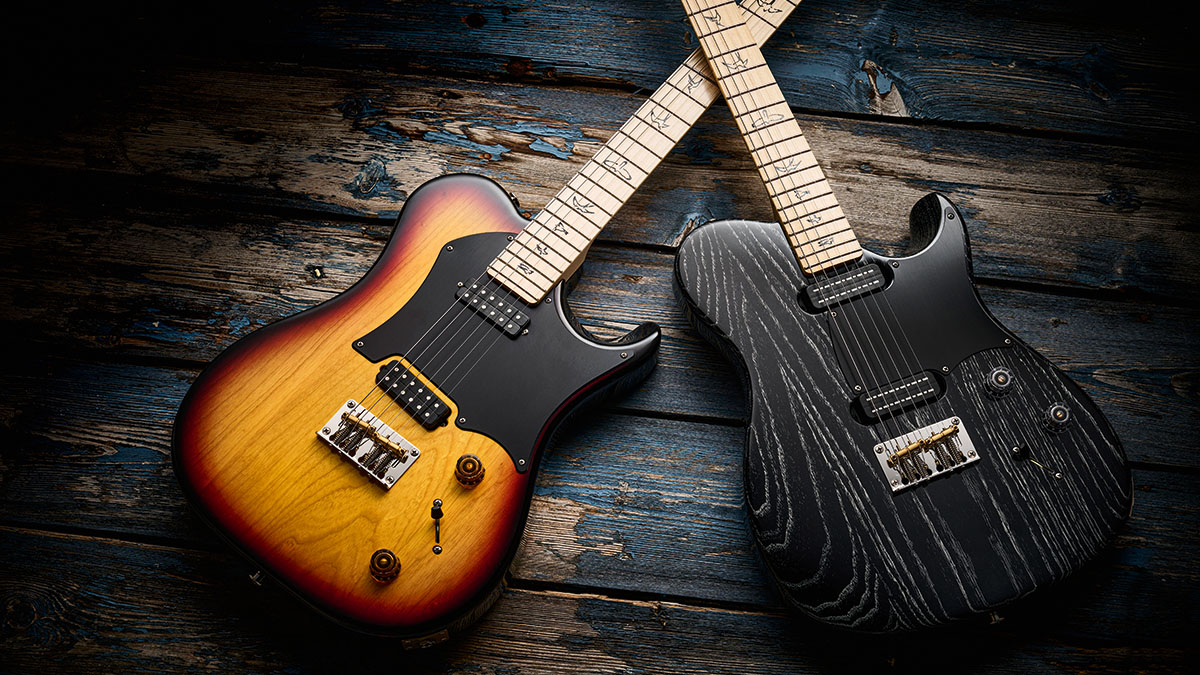John Mayall: "Eric Clapton was totally unique. It’s testament to his command of the blues at such an early age"
What do Eric Clapton, Mick Fleetwood, Jack Bruce and Peter Green have in common? At one point or another they've joined forces with the legendary bluesman
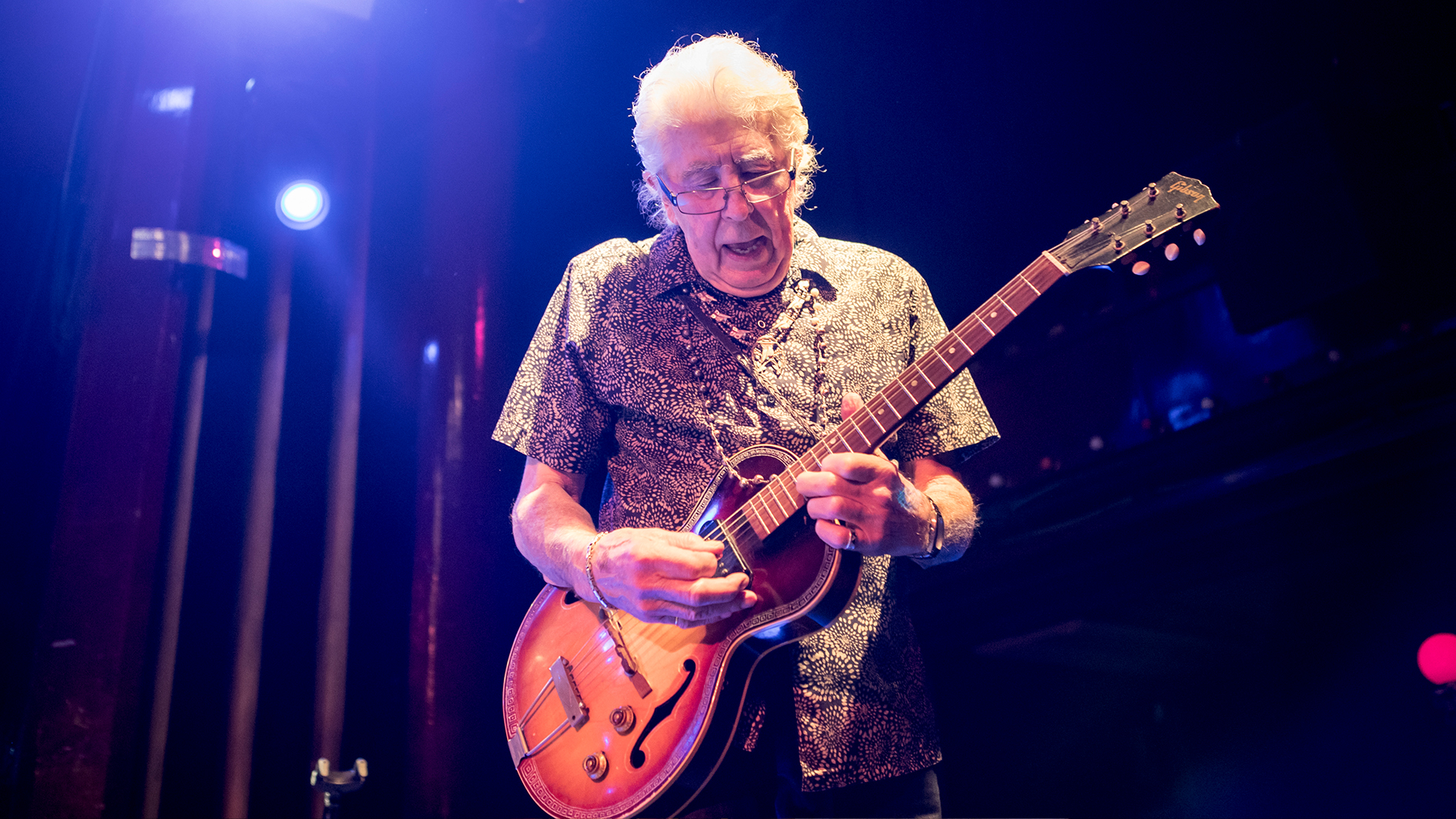
All the latest guitar news, interviews, lessons, reviews, deals and more, direct to your inbox!
You are now subscribed
Your newsletter sign-up was successful
Late last year, John Mayall - who was born November 29, 1933, in Manchester, England - issued his autobiography, Blues from Laurel Canyon: My Life As a Blues- man, which was co-written by Joel McIver, editor of Bass Player and Bass Guitar magazines. The book - published by Omnibus Press - chronicles Mayall’s wild journey from his WWII-era childhood to his 2016 induction into the Blues Hall of Fame. And what a journey it’s been.
Taking inspiration from guitarists like Django Reinhardt, Eddie Lang, Lonnie Johnson and Charlie Christian, Mayall started out playing ukulele and banjo. His first real guitar was a cheaply made semi-electric Weldone hollowbody that he bought in Japan in 1954 while on a week’s leave from the Army.
“It’s the guitar that’s on the cover of [Mayall’s 1967 album] The Blues Alone,” Mayall says. “I did all the fancy carved engraving to make it look more distinctive. It started out as a regular six-string guitar, but when I tried making it into a 12-string, the neck started to rebel, and I had to take the extra strings off. It was a great guitar; unfortunately, I lost it in the 1979 fire that destroyed every possession I had.”
After forming the first incarnation of the Bluesbreakers in February 1963, Mayall’s debut album on the British Decca label, March 1965’s John Mayall Plays John Mayall, was not a commercial success, and the band was dropped.
However, later that year, in a session helmed by a 21-year-old Jimmy Page, then the house producer for the small Immediate Records label, the band - with a brilliant 20-year-old guitarist named Eric “Slowhand” Clapton now in the fold - recorded I’m Your Witchdoctor, which was backed by Telephone Blues.
“The recording of Witchdoctor was a real struggle for Eric,” Mayall says. “He wasn’t interested in doing his feedback thing in the middle. However, for Telephone Blues, Eric’s playing was really terrific and remains one of his greatest pieces of work at that time.”
Mayall’s bands have been referred to as finishing schools, with more than 100 different lineups over the past 57 years. Besides the holy trinity of guitarists - Clapton, Peter Green and Mick Taylor - the list contains the likes of Buddy Whittington, Coco Montoya, Harvey Mandel, Jeremy Spencer and Walter Trout; bassists Jack Bruce, John McVie, Larry Taylor and Andy Fraser; and drummers Mick Fleetwood, Jon Hiseman and Colin Allen.
All the latest guitar news, interviews, lessons, reviews, deals and more, direct to your inbox!
“I’ve always aimed for quality in the music and picked musicians I like to play with and enjoy listening to,” he says. “So I provide the freedom for them to continue their careers and explore what they can do with the music.”
Everybody was on the same circuit, all just playing at the same clubs up and down the country
What was the British club scene like in the early and mid '60s when you and so many other young musicians were basing their style on American blues?
"It replaced traditional jazz very quickly. It was a new generation that was discovering this music for the first time, and almost overnight, took over club life. Everybody was on the same circuit, all just playing at the same clubs up and down the country.
"It was a very well-knit society, really, and it was a very exciting time to hear all these new bands coming up. This was the kind of music I’d always played and loved, and here was a good opportunity for me to join in."
Do you recall your initial impression of the Rolling Stones, the first time you ever saw them play?
"They were full of energy and obviously influenced by people like Jimmy Reed and Chuck Berry, a rock and roll band with blues overtones. They were already a very tightknit band, and I could tell right away that they were on the right track to draw people’s attention to where the music came from. I got to be good friends with Brian Jones, who was an enthusiastic blues enthusiast from the very beginning."
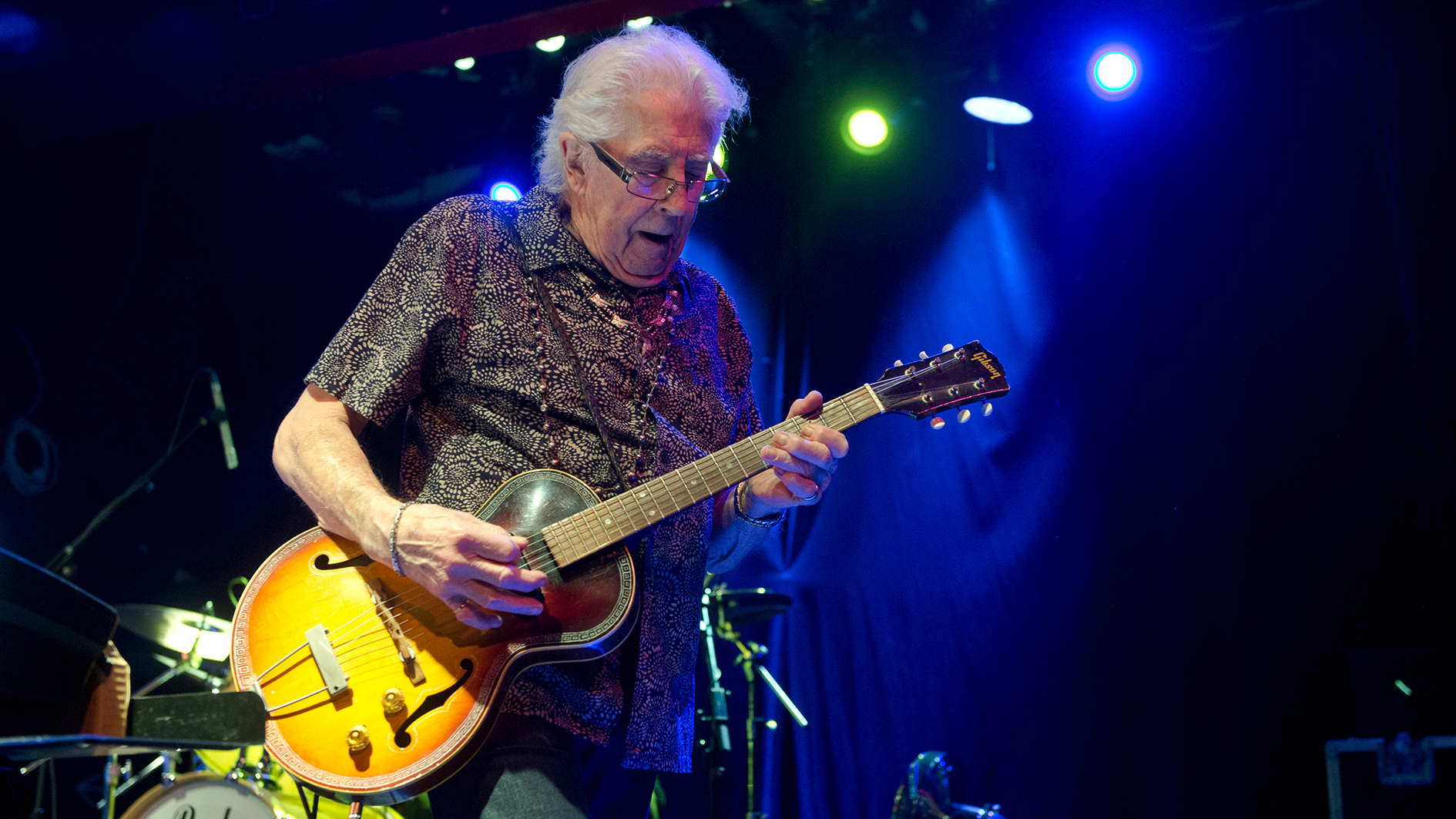
While we're on the subject, how about the Yardbirds and the Animals?
"The Animals caused quite a stir in the London clubs when they began appearing regularly in the south of England. Just watching them, people could tell they were really connecting with audiences.
"The Yardbirds were making a name for themselves in the clubs, although they weren’t exactly my taste. The only person in the band I could relate to was Eric [Clapton], who seemed to be the only one with a real knowledge of where the blues came from."
Sonny Boy Williamson, who actually recorded live albums with the Yardbirds and the Animals, was once quoted as saying, “Those British boys want to play the blues real bad… and they do!” Do you think he was being fair, or even joking…?
We British bands were all doing the best we could to share our own take on American blues
"I’ve read that quote of Sonny Boy’s so many times that I just regard it as a really good quote that the press in general liked to pick up on. In a sense, he was accurate in his opinion. We British bands were all doing the best we could to share our own take on American blues. It was a bit amateurish, but we felt respectful as we tried our best to deliver our own versions of our blues heroes."
You were about 10 years older than most of the other bands’ members at the time. Would you say that gave you an advantage in terms of being viewed as a more authentic interpreter of the blues?
"I don’t know exactly how to judge my own performance at that time, although I do have to say that having more years to appreciate the American masters of the blues gave me a much wider understanding of the music’s history."
What stands out from your 1964 tour with John Lee Hooker?
"It was very exciting for us to be playing with somebody that famous. It was also the first time he had come to England to do a real tour, and he was surprised to find out how much he was appreciated. We tried our best to support him, but it was sometimes difficult because John Lee didn’t have any sense of where the chord changes would be, so we constantly had to be on our toes.
"Because of the low volume he played at, we learned a lot more about the subtleties of the blues than the way we had been playing by ourselves; mainly that we didn’t have to do it at full-throttle volume in order to communicate the excitement of the music. It was a real education for all of us."
How did you first connect with Clapton?
"Well, he didn’t approach me. I had to dig him out because he was so disenchanted with the whole scene right after he left the Yardbirds. So I had to talk with him and convince him that what I was doing was more genuine."
It’s probably not that well known, but Peter Green actually played with you before Clapton, but apparently his tenure was short lived?
Peter actually sounded better than the others, so I hired him, but then Eric came back a week later, and that put him out of a job
"Eric was with me for a little while before he just went off to Greece, so there was a vacancy. Peter was one of the first young guitarists to come forward saying he’d like the gig. He actually sounded better than the others, so I hired him, but then Eric came back a week later, and that put Peter out of a job, which, of course, didn’t please him. I had promised Eric his job back if things didn’t work out in Europe."
The album you made with Clapton in 1966 [Blues Breakers with Eric Clapton, AKA “The Beano Album”] still sounds remarkably fresh after all these years, and of course, is considered a classic.
"Well, I think it’s the overall quality of the playing and the fact that Eric was totally unique at that particular time. It’s still a testament of his command of the blues at such an early age. He had such mastery of his guitar, and it really stood out. Eric was definitely ahead of his time, and I think the album captured everything very, very well."
Did you feel a sense of betrayal when you found out Eric had formed Cream with Jack Bruce and Ginger Baker without telling you?
"No, it was nothing to get upset about because back then people would come and go. It was just part of the game. If somebody leaves, it means they’ve outlived what they want to do, and they’re not giving their best to you anyway.
"When you’re the bandleader, you always have the power to hire new people, and for me it’s always been a relatively simple operation. Cream were a great band and put out some great music, but of course the clashing of the three personalities made it impossible to continue for very long."
It’s amazing how young these British musicians were when they came to your band. Clapton was 20, Peter Green and Mick Taylor were still teenagers, and Andy Fraser, who later joined Free, was 15. Yet they already seemed to be playing with the kind of authenticity of older blues musicians.
"I think it’s because so many of those players had a real reverence for the music and wanted to do it as best they could. There was an awareness that what they were trying to do wasn’t the scene in America at the time, but it was in parts of Europe. There were all these elements of the blues in black American music, which didn’t mix up with white American music.
So when these great blues musicians came over to England and found these adoring audiences, it was something they’d never experienced before
"Black musicians and white musicians were on separate lifestyles. Prejudice in England wasn’t as widespread as it was in America, so when these great blues musicians came over to England and found these adoring audiences, it was something they’d never experienced before."
How do you respond when people ask, “Can white people sing the blues with the same authenticity as a black singer?”
"My answer is that music touches all people’s hearts. You absorb it and you channel it. It doesn’t matter what color you are, or whatever era you grow up in. It’s the emotion that counts, the understanding of the history of the music, and finding that as a vehicle to express yourself through it.
"All the best notable singers, whether they’re black or white, have certain recognizable traits. Buddy Guy’s singing doesn’t sound like anybody else’s. Neither did B.B. King’s. The same is true for English singers like Steve Winwood or myself, for that matter."
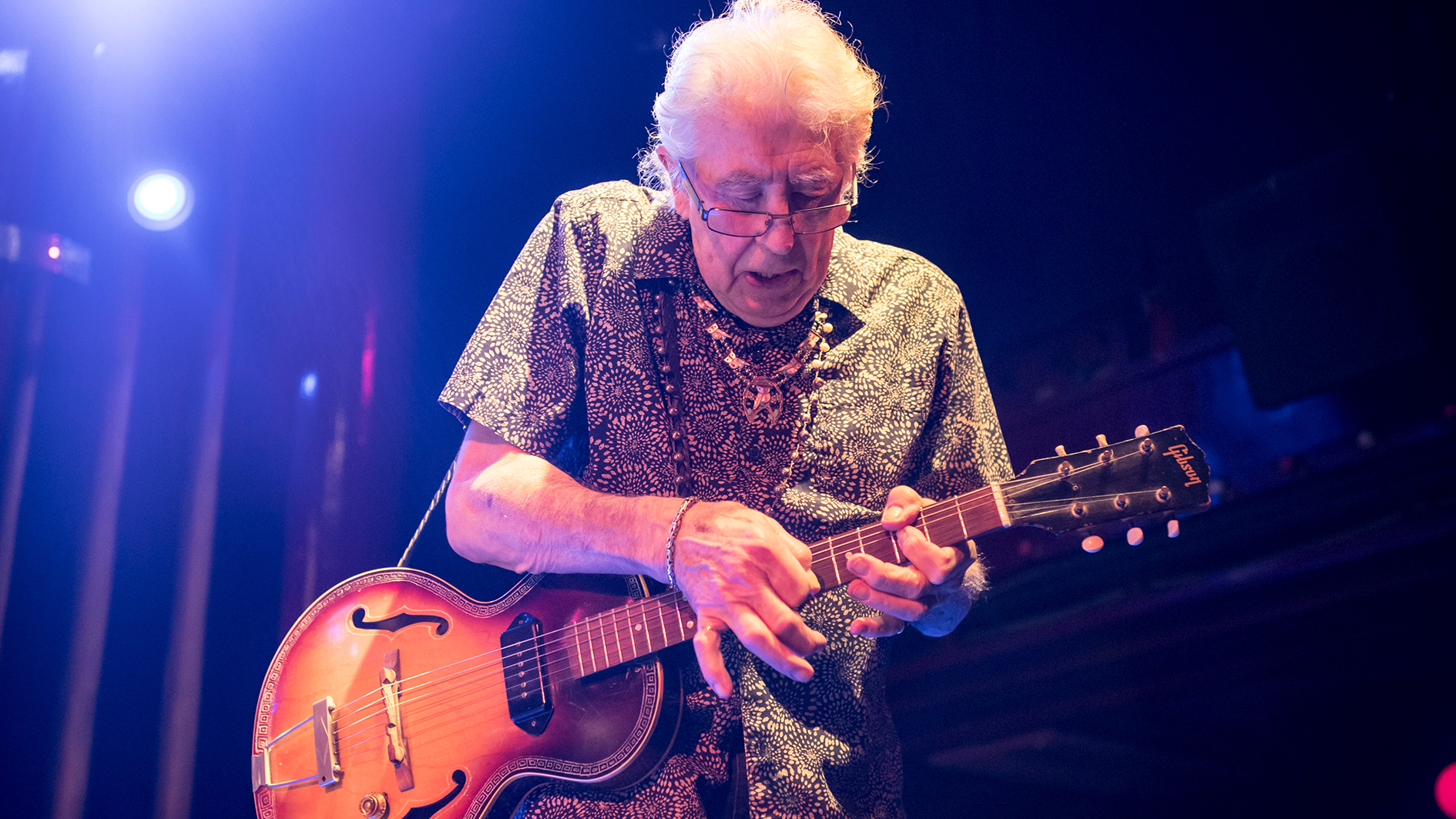
When I saw you in concert recently, you were playing a Gibson ES-125. Is that your main guitar these days? Tell us more about your current set-up.
"It’s actually the only guitar I take on tour. I like the Roland Jazz amplifiers because of the chorus effect. I don’t do anything special to my guitars except decorate the bodies. So there aren’t any tricks with them at all. I just pick up my guitar and plug it in, and I’ve never used any special tunings over the years, just standard open tuning."
You’ve attracted so many great - even legendary - guitarists over the years, not just Clapton, Green and Taylor, but a whole host of others who may not be quite as famous, but who are enormously talented in their own right.
"Yeah, absolutely. I mean, the most important people, no matter what instrument they play, but particularly guitar players, all have their own unique style that sets them apart from someone else.
I would also give credit to the remarkable difference Eric Clapton made to my band’s sound
"You know, the three guys you just mentioned, when they first joined my bands it was a major talking point, but by the time American blues players like Harvey Mandel came along, it was pretty well established that the lead guitar was an important part of the scene. It wasn’t such a newsworthy item any more."
It must be hard for you to name favorite guitarists who’ve played in your bands, because I’m sure you don’t want to slight anyone. But can you pick three who really added something unique, like, for example, Jon Mark, who brought a quieter acoustic element to your music?
"I always stay clear of naming individual guitar players because they all added something unique to my work. If I had to pick three though, one I’d go for would be Buddy Whittington who I think was the longest member of any of my band lineups.
"I would also give credit to the remarkable difference Eric Clapton made to my band’s sound. He really was the first to understand what the blues was all about. I’d also have to give a nod here to another favorite of mine who is not that well known, Randy Resnick. He had a remarkable style that enhanced all of the songs we played, and took me to new places."
It must have been a really big thrill for you to produce an album for Albert King [The Lost Session]. What memories do you have of those sessions?
"Well, Albert didn’t read or write music, so you couldn’t show him what we were going to play. Basically my musicians and I would set a tempo and a key. We’d just start playing a song and say, 'OK, this is how this one goes. Can you put your guitar on it and make up a vocal?' and he’d get the idea. So it was all a very natural progression. He was a great player, a totally individualistic style, and we got on great together."
Apparently, your London session with Bob Dylan in 1965 didn’t go as smoothly.
We were all just waiting for him to present something we could actually play, so it turned out to be a big waste of time for everybody involved
"Hardly, no. [Laughs] Bob’s producer at the time, Tom Wilson, thought it would be a great idea to get all of us in the studio. It was supposed to be a big deal getting together with Dylan, and we were all excited, but the only thing I can remember is that it was a total disaster.
"Eric and all of us were all just waiting for him to present something we could actually play, so it turned out to be a big waste of time for everybody involved."
Who would be some of your favorite guitarists who weren’t in your bands?
"I’d start with Jimi Hendrix and Django Reinhardt. Jimi had such a powerful way of playing in his use of an amplified guitar. I had the pleasure of working alongside Jimi on many a club date in the '60s. It was my father who turned me on to Django, who managed to play faultlessly despite the loss of two fingers.
"Robert Johnson forever changed guitar technique to combine traditional styles with his own fingerstyle of playing. The simplicity and style and emotion Muddy Waters could conjure up showed people how powerful electric blues could be in his hands. All the best players, regardless of what era they came from, only have to play a few notes and you know immediately who it is, whether it’s Blind Lemon Jefferson or someone who’s around now."
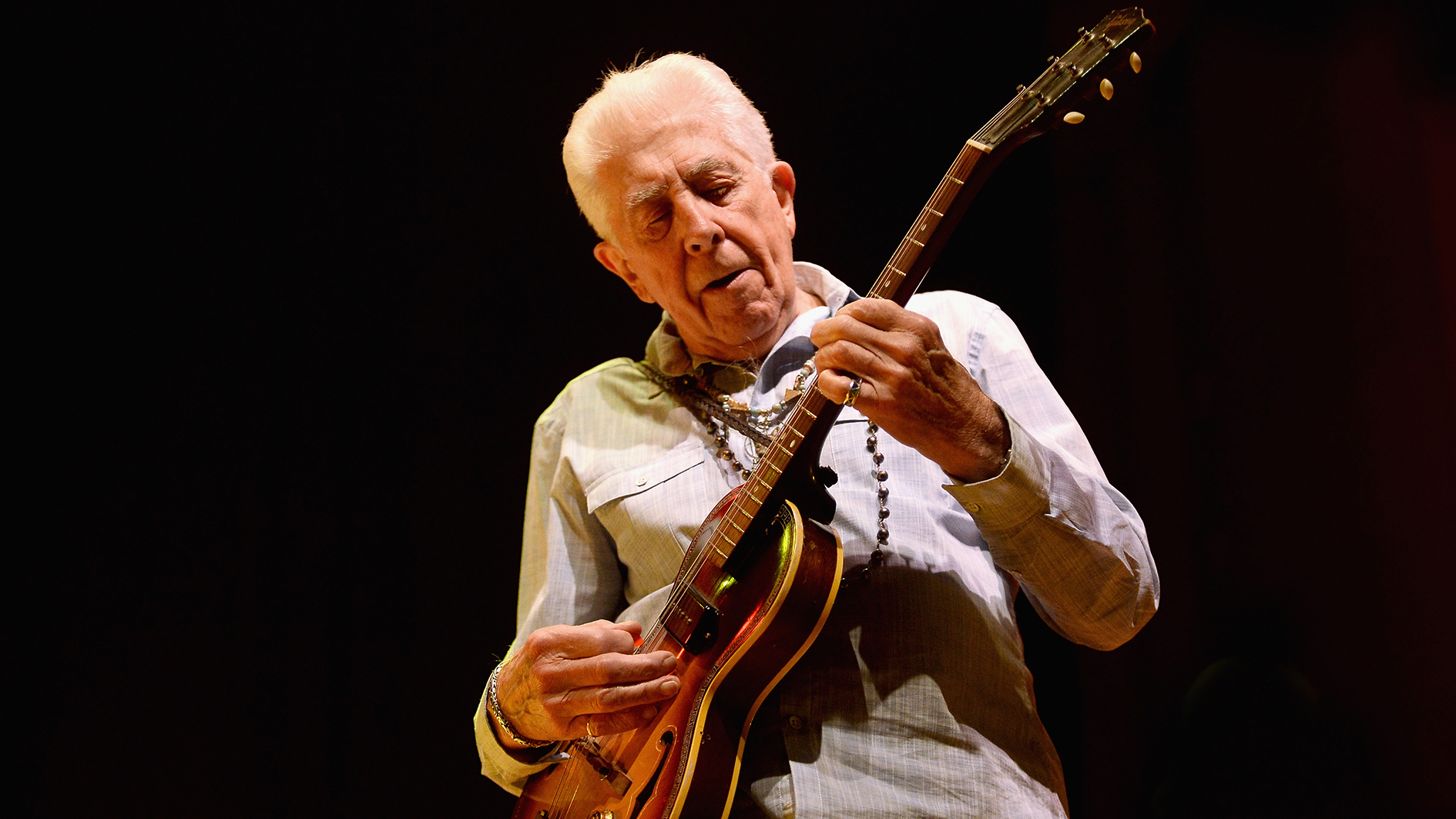
At 86, do you ever think there might come a time when you’d consider retirement?
"I hope to be able to continue playing as long as I can do a really good job. I don’t believe in doing like a lot of performers who just get by on their name. I want to make sure I can still give an exciting performance every time I go out and play.
"Luckily, I’ve still got good enough health to be able to perform physically and vocally through the instruments. As long as you’ve got enough energy to give a good show, that’s the most important part."
I’m proud of everything I’ve done. I’m glad people still enjoy listening to my music
Do you have any secrets to still do such high-energy performances? Is it yoga? A vegetarian diet?
"No, no! Stay away from yoga. Stay away from a vegetarian diet and all that stuff! It’s the music and the audiences that energize you. When I’m on the road, the easiest part of the day for me is when I’m up there onstage. It’s the travelling and the checking in and out of hotels that becomes monotonous. But once you step out onstage, that’s your reward to let loose."
You’ve had such a legendary career. What are you most proud of?
"I’m proud of everything I’ve done. I’m glad people still enjoy listening to my music. I’ve never had any hit records or things that you might think would be important, but whatever I’ve done, I’m glad it still exists."
Is mortality on your mind a lot?
"Well, you know, we’re all going to die, but I don’t see any signs of it happening soon. It’s the big unknown question that nobody knows the answer to, so I just enjoy life to the fullest every day and will keep doing what I’m doing as long as I can."
What do you see as the future of the blues when people like you and Buddy Guy are no longer around?
"As long as we, as musicians, have something special to share with audiences, there will always be fresh ears to appreciate the blues in all its glory. There will always be new players emerging, such as Joe Bonamassa and Larry McCray, who have absorbed the work of their predecessors and put their own take on keeping the blues alive and kicking. Don’t worry about audiences. They will always be there."




